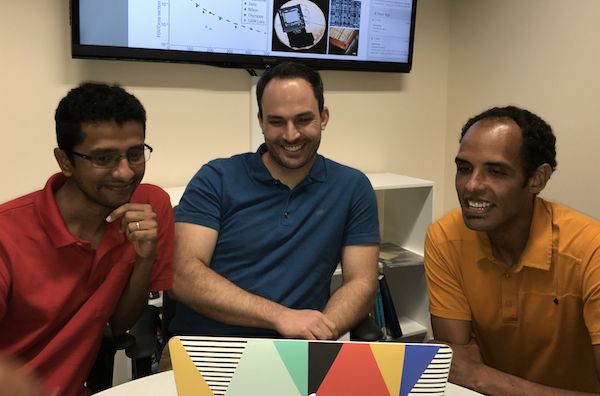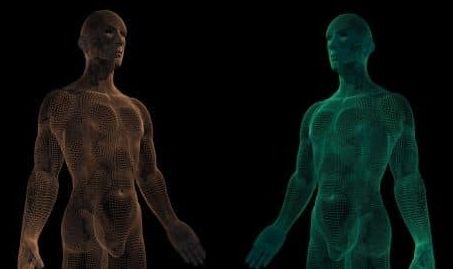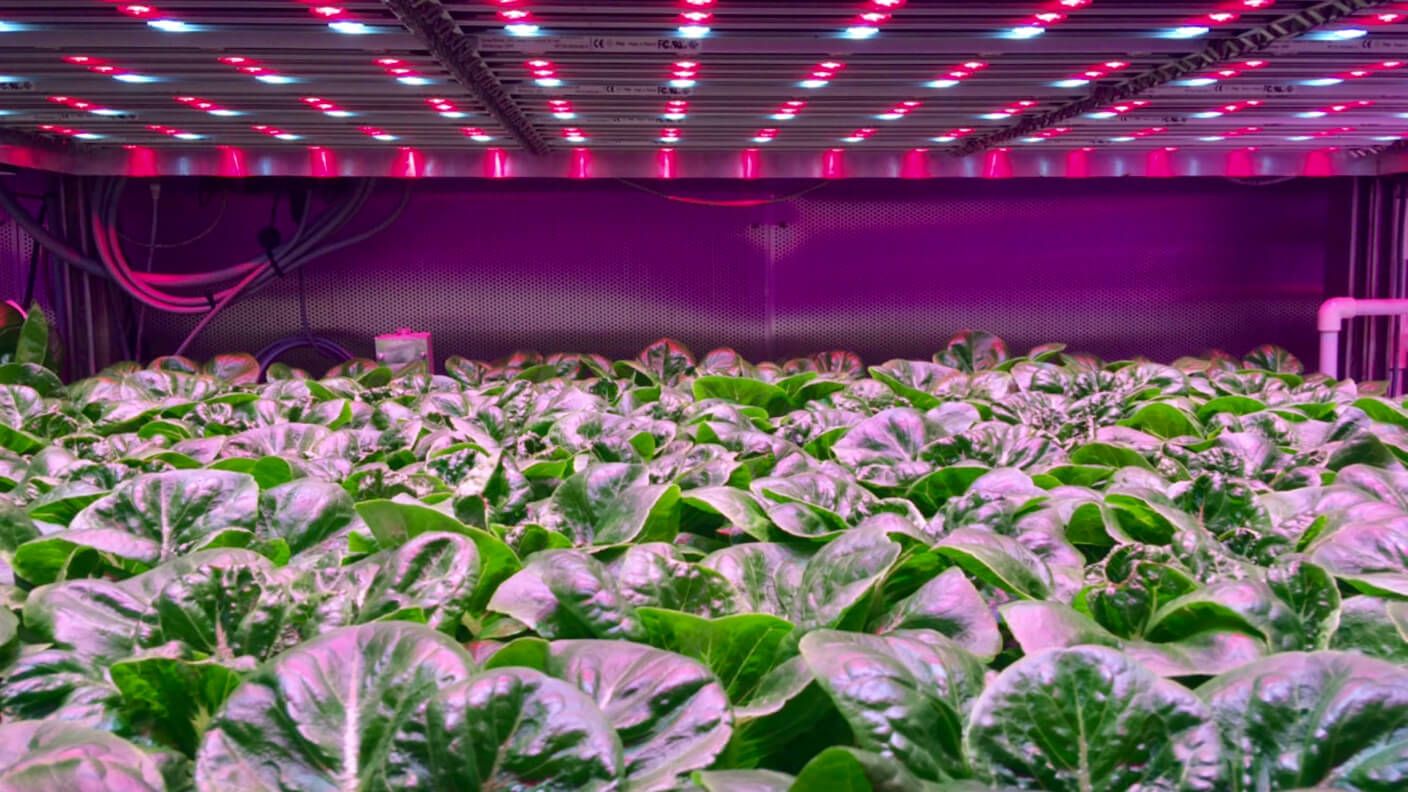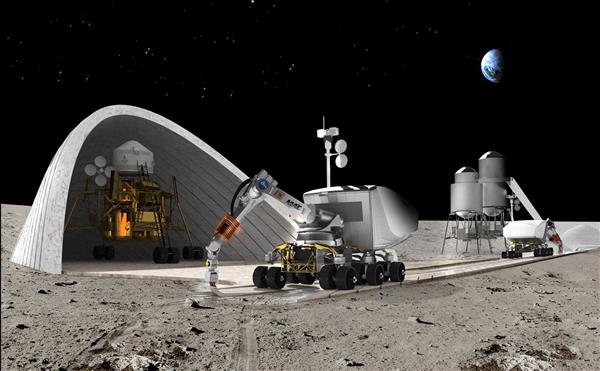Page 10013
Jul 14, 2017
Rice team developing flat microscope for the brain
Posted by Klaus Baldauf in categories: engineering, government, neuroscience
HOUSTON – (July 12, 2017) – Rice University engineers are building a flat microscope, called FlatScope TM, and developing software that can decode and trigger neurons on the surface of the brain.
Their goal as part of a new government initiative is to provide an alternate path for sight and sound to be delivered directly to the brain.
The project is part of a $65 million effort announced this week by the federal Defense Advanced Research Projects Agency (DARPA) to develop a high-resolution neural interface. Among many long-term goals, the Neural Engineering System Design (NESD) program hopes to compensate for a person’s loss of vision or hearing by delivering digital information directly to parts of the brain that can process it.
Continue reading “Rice team developing flat microscope for the brain” »
Jul 14, 2017
Scientists Are Building Humanoid Robots Using Skin Grafts
Posted by Gerard Bain in categories: biotech/medical, robotics/AI
- Scientists are eager to begin using humanoid robots as a means to test medical technology that could help us better understand how muscles and tendons work.
- By overlaying lab-engineered tissue onto mechanical robot skeletons, scientists would essentially be creating part-human, part-robot test subjects.
With all the advances being made in robotics in terms of capabilities, it was only a matter of time before researchers took it one step further, making robots look more human. That’s what a pair of biomedical researchers at the University of Oxford are hoping to do, anyway.
Jul 14, 2017
Rejuvenation is good for society
Posted by Nicola Bagalà in categories: biotech/medical, life extension, neuroscience, quantum physics
The benefits of rejuvenation biotechnologies would extend to the whole human society. #aging
Rejuvenation isn’t good just for individuals and the people close to them. It is good for society as a whole, for a number of reasons. These reasons—which I will now proceed to discuss—should be enough make rejuvenation research a top priority for humanity in its entirety.
Ever heard anyone lamenting that the great minds of history are no longer with us? That we could certainly do with all the Einsteins, Montalcinis, Fermis, Curies, etc, living longer? And have you ever felt saddened when a great mind of our time died? You probably did, or at the very least know someone who did.
Just imagine how much faster would science and progress march if our greatest physicists, doctors, engineers, philantrophists, etc, could live an indefinitely long life. Remember that we’re not talking about a longer life spent in decrepitude and sickness: We’re talking about a 200-year-old Einstein with the experience of two centuries but the physical and mental agility of a 25-year-old. If he was still alive, maybe he could’ve figured out how to unify general relativity with quantum mechanics—something that has been eluding all efforts for decades. Every time a great person (or any person, for that matter) dies, their particular experience is lost forever. Never mind that there are other experts, or that similar knowledge is found in books; it’s not even remotely the same. Rejuvenation would allow us to benefit from the knowledge and wisdom of the best among us for centuries on end.
Jul 14, 2017
A Behind-the-Scenes Look at Europe’s Huge New Vertical Farm
Posted by Montie Adkins in categories: food, sustainability
The Eindhoven High Tech Campus, a 90-minute train ride south of Amsterdam, consists of two rows of nondescript mid-rise office buildings on either side of a wide, tree-lined road. In typical Dutch fashion, there’s more parking for bikes than cars, and the campus is flanked by stretches of neatly-maintained green fields and canals.
The place doesn’t have an especially high-tech feel to it. But on the third floor of a building near the end of the road, a division of Philips Lighting called GrowWise is using technology to tackle a crucial question: what are we going to eat once there are over nine billion people on Earth?
GrowWise is a vertical farming research facility, and in conjunction with Dutch fresh food distributor Staay Food Group, it’s laying the groundwork for the first commercial vertical farm in Europe, slated to open north-east of Amsterdam in a town called Dronten later this year.
Continue reading “A Behind-the-Scenes Look at Europe’s Huge New Vertical Farm” »
Jul 14, 2017
Click Here for Happiness
Posted by Johnny Boston in categories: biological, bionic, computing, electronics, entertainment, fun, internet, media & arts, mobile phones

Technology can be wonderful. But how do you keep track of yourself when technology allows you to be everywhere at once?
In this film Prof. Yair Amichai-Hamburger (director of the Research Center for Internet Psychology at the Sammy Ofer School of Communications) argues that even though technology allows us to reach out and connect more easily than ever before, if we don’t ever take a step back, we can lose track of our humanity in the process.
Tags: flow, GPA, happiness, internet, loneliness, media, Messaging, philosophy, phones, professor, social media, technology, texting, video, yair amichai-hamburger
Jul 13, 2017
Will Self-Driving Cars Kill Your Job?
Posted by Johnny Boston in categories: automation, business, driverless cars, drones, futurism, media & arts, robotics/AI, transportation

Self-driving cars are pretty cool. Really, who wouldn’t want to spend their daily commute surfing social media, chatting with friends or finishing the Netflix series they were watching at 4 am the night before? It all sounds virtually utopian. But what if there is a dark side to self-driving cars? What if self-driving cars kill the jobs? ALL the jobs?
In this video series, the Galactic Public Archives takes bite-sized looks at a variety of terms, technologies, and ideas that are likely to be prominent in the future. Terms are regularly changing and being redefined with the passing of time. With constant breakthroughs and the development of new technology and other resources, we seek to define what these things are and how they will impact our future.
Jul 10, 2017
Follow the money – the future evolution of automotive markets
Posted by Alexandra Whittington in categories: business, disruptive technology, driverless cars, futurism, transportation
The automotive industry is undergoing a period of rapid and radical transformation fueled by a range of technological innovations, digital advancements and wave after wave of new entrants and alternative business models; as a result, the entire sector is seeing major disruption.

Tags: future, technology
Jul 10, 2017
NASA announces winners for latest round of 3D Printed Habitat challenge, over $200k prize money awarded
Posted by Klaus Baldauf in categories: 3D printing, economics, habitats, space
Phase 1, which was the Design part of the competition, was completed back in 2015. Phase 2 is the Structural Member Competition, and the most recent level challenged competitors to 3D print a beam for bend testing. Scores were calculated based on the final material composition of the 3D printed beam and the maximum load that could be held before it failed.
Seoul-based Moon X Construction were not eligible for prize money, but $67,465 was awarded to Form Forge of Oregon State University for the second place entry. Foster and Partners with Branch Technology of Chattanooga, Tennessee came in third, earning $63,783, after getting $85,930 for getting first place in the first round of Phase 2. Fairbanks University of Alaska and CTL Group Mars of Illinois came in fourth and fifth respectively, with Singaporean team ROBOCON finishing in sixth place.

Jul 10, 2017
DARPA to Spend $65 million on Human Brain Modem
Posted by Klaus Baldauf in category: neuroscience
High-bandwidth connections into the brain could treat blindness, paralysis, and speech disorders.














